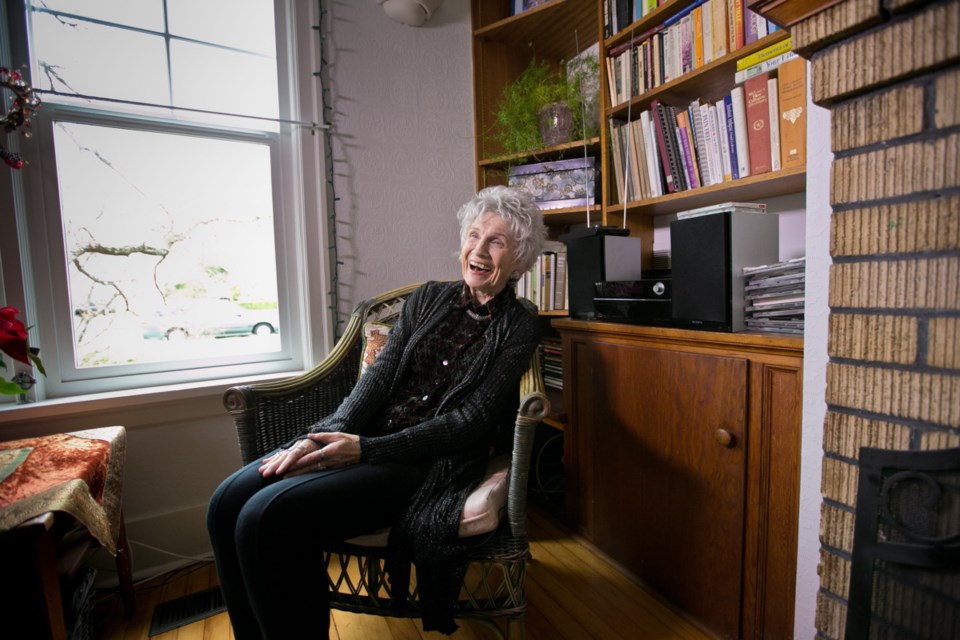Alice Munro’s philosophy seems to be: if you’re going to retire, it’s best to do it on a high.
On Tuesday, the writer proudly watched on television as her daughter Jenny Munro accepted the Nobel Prize for literature on her behalf in Stockholm.
That same day Munro confirmed that the rumours are true. Having achieved literature’s greatest honour, she will set down her pen for good.
“I have stopped writing. I think in my mind that’s a very permanent thing,” she said, interviewed at the Oak Bay home of her other daughter, Sheila Munro.
“I’ve been doing it for a long time. I feel quite satisfied now. I’m just going to laze around.”
The 82-year-old writer was too frail to make the trip to Sweden to accept her prize.
“I’m quite glad to have my daughter do this for me. And I think she looked wonderful. And I was very proud of her,” said Munro, a slim, elegant woman.
Reporters lined up at the doorstep of the Oak Bay bungalow, seeking interviews with the writer who has been crowned a literary superstar.
Sweden’s royal family attended the Nobel Prize ceremony at Stockholm Concert Hall.
Peter Englund of the Swedish Academy described Munro as a perceptive short-story writer who “is often able to say more in 30 pages than an ordinary novelist is capable of in 300.”
He added: “If you have never before fantasized about the strangers you see on a bus, you begin to do so after having read Alice Munro.”
Asked if she regretted being unable to attend, a cheerful and talkative Munro said: “It does sound like fun. But it also sounds like a great deal of stamina is required.”
The writer, who grew up on a farm outside Wingham, Ont., said she harboured the “preposterous notion” of achieving celebrity even as a girl.
“I expected to be famous,” Munro said. “This is because I lived in a very small town. There was nobody who liked the same things that I did. I just thought naturally, someday, I’m going to write books.”
Although she still has a home in Clinton, Ont., Munro said it is “quite possible” she will settle in Victoria permanently.
For now, she’s living with Sheila.
For Alice Munro, winning the Nobel Prize is not only a validation of her life’s work. It is a validation of the short fiction form.
“Short stories were not at all desirable in the eyes of people who publish books. After a while [it was apparent] I wasn’t doing anything else. And, very gradually, they got to value me as a writer.”



